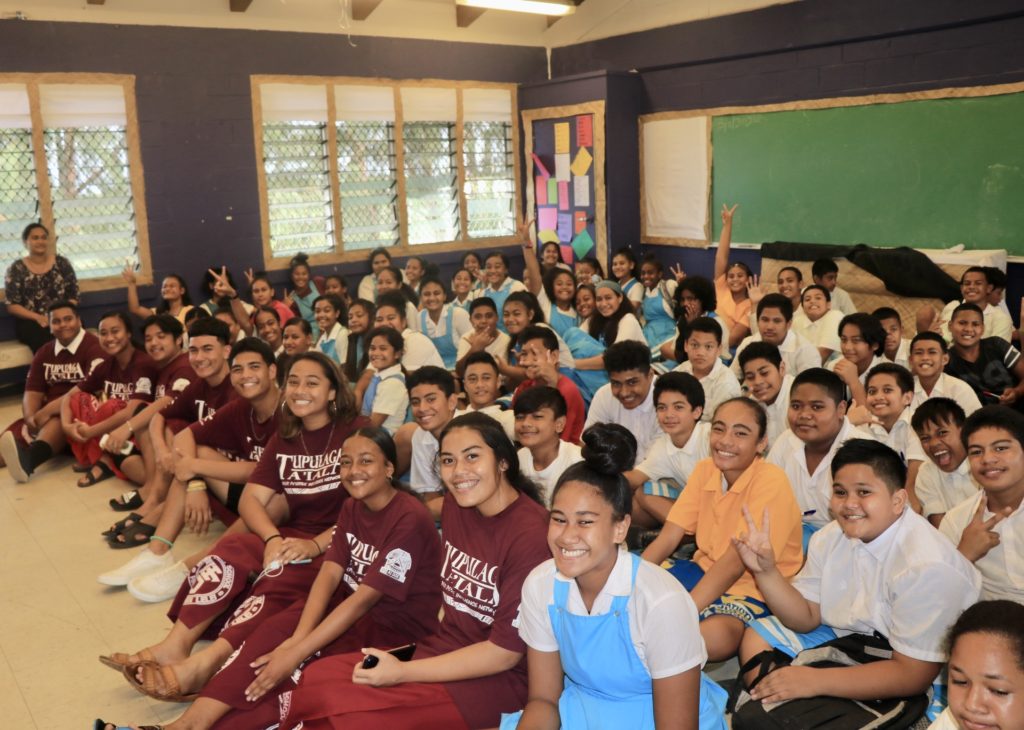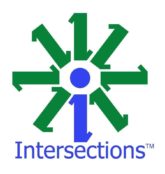Programs

WORKSHOPS FOR PARENTS
Intersections recognizes that parents are a child’s first and most important role models. A parent’s influence is vital in teaching a young person to make healthy decisions. We are committed to supporting parents as they provide the first line of defense on their child’s behalf.
Our Workshops for Parents are designed to inform and educate parents by giving parents the information, encouragement, and tools to help them communicate effectively with their children, especially on the topic of sexual health.
Contact us to schedule a workshop for parents in your group.
DRAMA EDUCATION
Intersections began using drama education and strategies to address youth and social issues in 2003 and has been going strong. Working in collaboration with Honolulu Theatre for Youth and funded by both federal and local grants, our original plays, films, and public service announcements (PSA) tackle real-life issues like abuse and teen suicide (Silent Cries – 2003), teen pregnancy and peer pressure (A Walk in Our Shoes and Dreams Interrupted – 2007) and have reached more than 35,000 youths in American Samoa, Hawaii and Oregon.
By combining practical instructions with a message of hope, we’ve given our youth, both on- and off-stage, a voice and a role in creating solutions to the issues our community is facing today. In an atmosphere of fun and creative expression, investigating and thinking critically, they learn to find their voice and to articulate their thoughts. They learn to craft a message so they can connect to their community and make a difference in the world around them.
In the process, our youth learn valuable life lessons like compassion and hope, courage and resilience, responsibility and work ethics, and so much more. They have gained marketable skills such as teamwork and time management; presentation and public speaking, as well as directing and management.
Initial funding that began our drama education work in 2003, was awarded by the U.S. Administration for Native Americans – Social and Economic Development Strategies.
SEXUAL HEALTH EDUCATION
HERITAGE KEEPERS ABSTINENCE EDUCATION
The impact of teenage pregnancies begins with the pregnant teen and extends to everyone in the family who becomes a part of the process and its outcome. It is linked to numerous social issues like poverty, education, health, parenting, and child safety and welfare. To equip and empower adolescents to abstain from sexual activity outside of marriage, Intersections partnered with Heritage Community Services to implement the evidence-based Heritage Keepers Abstinence Education program for adolescents and young adults under age 21.
The U.S. Department of Health and Human Services recognizes the Heritage Keepers Abstinence Education program (Heritage Keepers) as a proven effective, evidence-based intervention that reduces sexual initiation among teens, along with positive research findings that impact the health and well-being of youth. Heritage Keepers is approved for medical accuracy by the U.S. Office of Adolescent Health and it is one of only 41 programs that is included on the federal list of approved pregnancy prevention programs. The lessons contained in the Heritage Keepers curriculum are culturally relevant and readily adapted for implementation in Pacific Island communities.
The program goal is to reduce the number of teens initiating sexual activity and increase the number of sexually active teens returning to abstinence. The Heritage Keepers curriculum uses theoretical models and various methodologies in program implementation to encourage teens to develop a strong sense of personal identity and self-worth, set protective boundaries, resist peer pressure, determine and protect personal values and goals and set high standards for themselves. The curriculum is both practical and holistic in its approach and it is straightforward and fearless in tackling difficult and delicate topics that raises the bar with the expectation that, when given the opportunity, young people can and will stretch to meet a higher standard.
The Heritage Keepers curriculum also focuses on reproduction and sexually transmitted diseases (STDs), specifically discussing STD symptoms, treatments/cures, and prevention (all with information provided by the Office of Adolescent Pregnancy Prevention and approved for medical accuracy). Condom efficacy is also explained in relation to each STD.
Heritage Keepers educators are certified and trained to address the varying levels of sexual experience among teens including sensitivity to those who may have been sexually assaulted or abused. This holistic approach has received overwhelmingly positive feedback from students who have gone through the course, with post-program interviews indicating that more than 90% of participating students strongly like the program and instructor and would recommend it to a friend.
Over 5,000 young people in American Samoa have completed the Heritage Keepers Abstinence Education program, offering education and support to them and to their parents with research-based material that also honor and uphold the traditions and sensibilities of our Samoan culture.
Funding for this program is provided by the US Administration for Children and Families – Family and Youth Services Bureau under the Competitive Personal Responsibility Education Program.
HERITAGE KEEPERS LIFE SKILLS EDUCATION
The Heritage Keepers Life Skills Education (Life Skills) is intended to be a maintenance program for the Heritage Keepers Abstinence Education curricula. The Life Skills curricula contains twelve lessons related to character development, avoiding risky behaviors, and enabling individuals with positive behavior to deal effectively with the demands and challenges of everyday life. Life Skills including decision-making, communication, goal setting, self-management are also integrated in the program activities, as well as parent-child communication. Developing parent-child communication is essential to building healthy relationships as young people are made aware of the values their parents wish to convey that will help them define healthy and unhealthy relationships. The Life Skills program has been reviewed and approved by the U.S. Department of Health and Human Services and Office of Population Affairs for medical accuracy and scientific referencing from widely accepted social science research.
Funding for this program is provided by the US Administration for Children and Families – Family and Youth Services Bureau under the Sexual Risk Avoidance Education Program.
To learn more about the Heritage Keepers Abstinence Education and the Heritage Keepers Life Skills Education programs, visit Heritage Community Services website.
If you would like to schedule a workshop or the Heritage Keepers Program in your school, church, or group, please contact Loso I’aulualo, Chief Program Officer: lo@intersectionsweb.com
PEER LEADERSHIP AND POSITIVE YOUTH DEVELOPMENT
Intersections is dedicated to the task of equipping and training a resilient generation of young leaders, armed with courage and a mindset to find fresh solutions to the challenges we face in our communities.
Tupulaga Ta’iala was born out of the desire of high school students to talk to their peers about the benefits of avoiding risky behaviors. The Samoan word Tupulaga is referred to young people while Ta’iala means to lead or guide.
Tupulaga Ta’iala (TA’IALA) is a peer leadership and youth development program that offers a peer-facilitated approach to mentoring young people through the use of positive influence to constructively influence and guide young people’s attitudes and behavior.
TA’IALA affirms and empowers college age role models to mentor and teach high school students an interactive program designed to motivate young people to make healthy decisions and to avoid being distracted from their goals in life by sex, drugs, alcohol, bullying, and other risky behaviors. The curriculum contains medically accurate, research-based information that was developed for well-trained college-age peer mentors to train high school-age as peer leaders to lead in presentations to 6th, 7th, and 8th grade students, engaging them with relevant activities, such as short plays, storytelling, and topical discussions dealing with everyday pressures that each of them deal with on a daily basis. These lessons are taught by high school students during the school day to younger students.
Participants in our programs learn how to build healthy relationships and develop leadership skills; increase economic self-sufficiency and reduce poverty; decrease teenage pregnancy and sexually transmitted diseases (STD’s); delay initiation into risky behaviors like sexual activity, alcohol, tobacco and drug use.
To be selected as a peer leader for TA’IALA, high school counselors and teachers recommend students with a positive influence as role model students. These exemplary students are trained by adult coordinators and college-age students to present the curriculum. They use the process of drama devising to discuss research-based lessons and then present the following topics to elementary school levels (Grades 6–8): The Influences of the Media, Teen Pregnancy and Parenthood, Assertiveness Tools and Techniques, Friendship and Peer Pressure, Linking Drugs and Alcohol to Sex, Healthy Relationships, Learning to Love, and Bullying and Other Risky Behaviors.
Small groups of five to seven peer leaders teach the TA’IALA lessons to younger students. At most times, each group of student peer leaders are excused from their classes to present one lesson per semester. This is credited to them as a community service.
College-age students who were members of the TA’IALA program during high school are TA’IALA alumni and they serve as peer mentors and work closely with adult coordinators to plan, coordinate, and train high school peer leaders at the annual training retreat, community service projects, and the peer leader recognition ceremony.
The TA’IALA curriculum includes a collection of lessons from the organization’s best practices for youth programs over the years and engaging young people in decision making and actively participate in their own development and their contributions to society. The Tupulaga Ta’iala: Peer Leadership and Positive Youth Development Program is funded by the U.S. Administration for Children and Families – Administration for Native Americans under the Native Youth Initiatives for Leadership, Empowerment, and Development.
Contact us for more information about TA’IALA.
TESTIMONIALS
Perhaps one of the most meaningful moments for those who have dedicated their lives to empowering young people to avoid risky behaviors and make responsible choices are the characteristics and qualifications attributed to our programs by students, site facilitators, and parents that we served.
